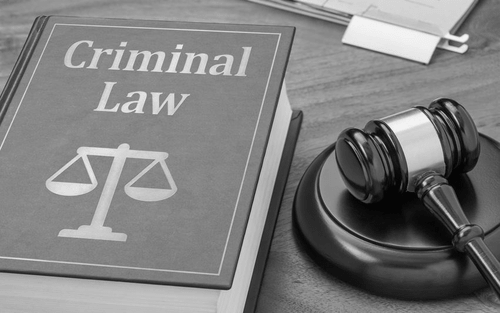Contributor: Adam Justinger
It is nearly impossible to turn on the news or read a newspaper and not hear about COVID-19. Not only has the virus caused people to self-quarantine, but it has also brought a newfound love to things like Tik Tok and the Tiger King. But, what if like Joe Exotic, you are arrested for a crime or an outstanding warrant? During these unprecedented times, the courts are taking actions that not only impact civil cases but criminal cases as well. So, what has changed?
Criminal Trials and Hearings
Pursuant to Order 25 from the North Dakota Supreme Court, criminal jury trials are suspended through July 1, 2020, unless otherwise ordered by the Court. This means that if you had a criminal jury trial scheduled prior to July 1, 2020, it has likely been rescheduled. While criminal defendants have the right to a speedy trial, the Court’s order has determined that if a district court continues a case where a speedy trial has been demanded, the period from March 16, 2020, to July 1, 2020, shall be deducted from the date by which trial must be commenced. Essentially, those dates would not be counted as part of the speedy trial demand.
While criminal and civil jury trials are suspended until July 1, 2020, civil and criminal bench trials and hearings are not suspended. However, the presiding judge of each district is given the discretion to continue bench trials or other hearings until June 1, 2020. Additionally, it should be noted that continuances and extensions related to COVID-19 should be presumptively granted according to the North Dakota Supreme Court.
Although most hearings can be continued or extended because of COVID-19, there are some mandatory hearings that do not fall under the presumption. One of these hearings is an initial appearance when a defendant is incarcerated. Thus, if you are arrested for an offense and taken to jail without a bond, you will still have your initial hearing and bond hearing.
Bond and Plea Agreements
The North Dakota Supreme Court has also issued Order 26 which deals with emergency bail and plea procedure. Due to COVID-19, the State has an interest in preventing the virus from entering into the jails/penitentiary. When setting a bond, the judge should consider the factors outlined in Rule 46 of the North Dakota Rule of Criminal Procedure. Under these factors, it can certainly be argued that a defendant should be released to prevent the spread of COVID-19 and promote self quarantining measures upon release.
Furthermore, Order 26 now permits a defendant to enter into a written plea agreement for a class C Felony. If individual wishes to enter into a plea agreement to a class C Felony, the plea agreement must be binding under Rule 11(c)(1)(C) of the North Dakota Rules of Criminal Procedure. Prior to COVID-19, an individual who wished to enter into a plea agreement to a class C Felony was required to be present in court.
Videoconference and Telephonic Conferences
In light of COVID-19, many different courts are turning to technology. For example, district courts throughout the state are utilizing technology to continue to have hearings while also helping avoid the spread of COVID-19. This includes hosting videoconferences and telephonic conferences in lieu of in-person hearings. For information on how your county is responding, you can look at this report and contact them for more information.
Not only are the district courts taking action, but so is the North Dakota Supreme Court. On March 23, 2020, the North Dakota Supreme Court heard what is being considered as the first oral argument via videoconference in the state’s history. The United States Supreme Court is also preparing for its first-ever oral argument via telephonic conference.
In Conclusion
If you are facing criminal charges or have been arrested during this unprecedented time, it may be in your best interest to contact an attorney. For help with criminal issues in North Dakota or Minnesota, please contact Adam Justinger at SW&L Attorneys in Fargo at 701-297-2890. This article is for informational purposes only.


